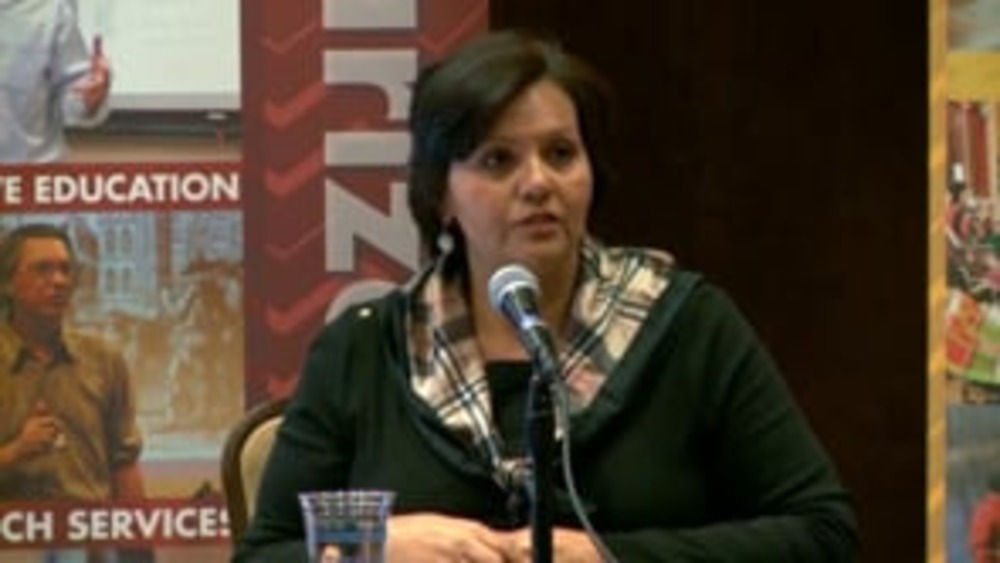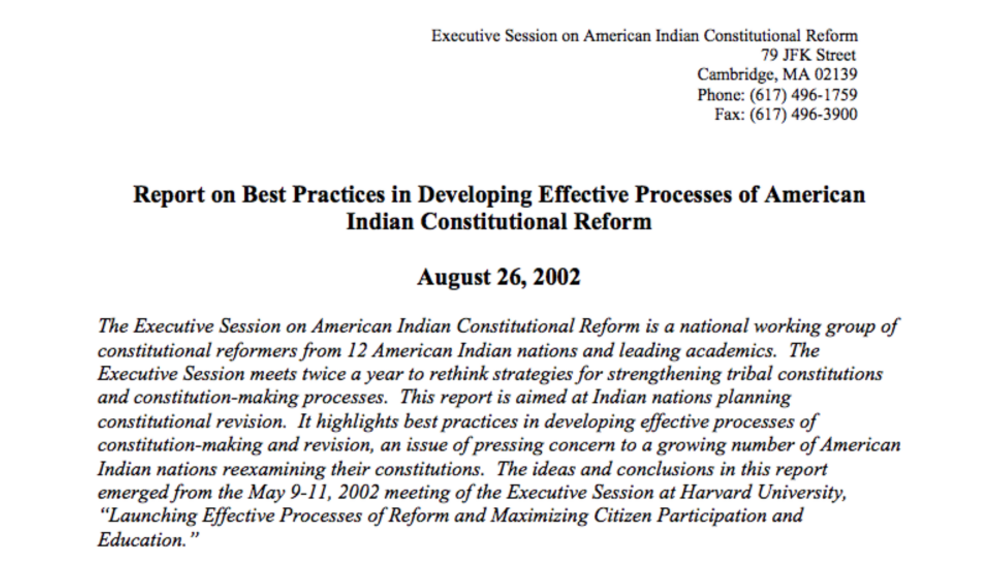Professor Robert A. Williams, Jr. shares a short test to help a Native nation and its leaders and citizens determine whether or not their judicial system is truly independent.
Additional Information
Williams, Jr., Robert A. "Justice Systems: Moving Your Nation Forward." Native Nations Institute for Leadership, Management, and Policy, University of Arizona. Tucson, Arizona. 2012. Lecture.
Transcript
"So, like Miriam, I'm going to ask you to take a test to see whether or not you have an independent judiciary on your reservation. Get out your pens, check yes or no, and we'll tally at the end:
On my reservation, the Chair is related to the Chief Justice -- yes or no?
On my reservation, the Chair is poker buddies with the Chief Justice.
On my reservation, judicial review means the Council can review any judge who makes an unpopular decision and fire him.
On my reservation, checks and balances are something the tribal finance office can’t keep track of.
On my reservation, separation of powers means the Council doesn't ask questions about the judiciary's travel expenses, and the judiciary doesn't ask questions about the Council's.
On my reservation, the question of whether the tribe has waived its sovereign immunity is something that only the Council can decide.
Now, if you had six to five "no's" you are very independent, but if you only had one to two, it's kangaroo court city, babe. Where do you stand on that test? And as tribal leaders, you need to engage honestly with this issue of, 'Are you ready for an independent and strong tribal judiciary?'"


